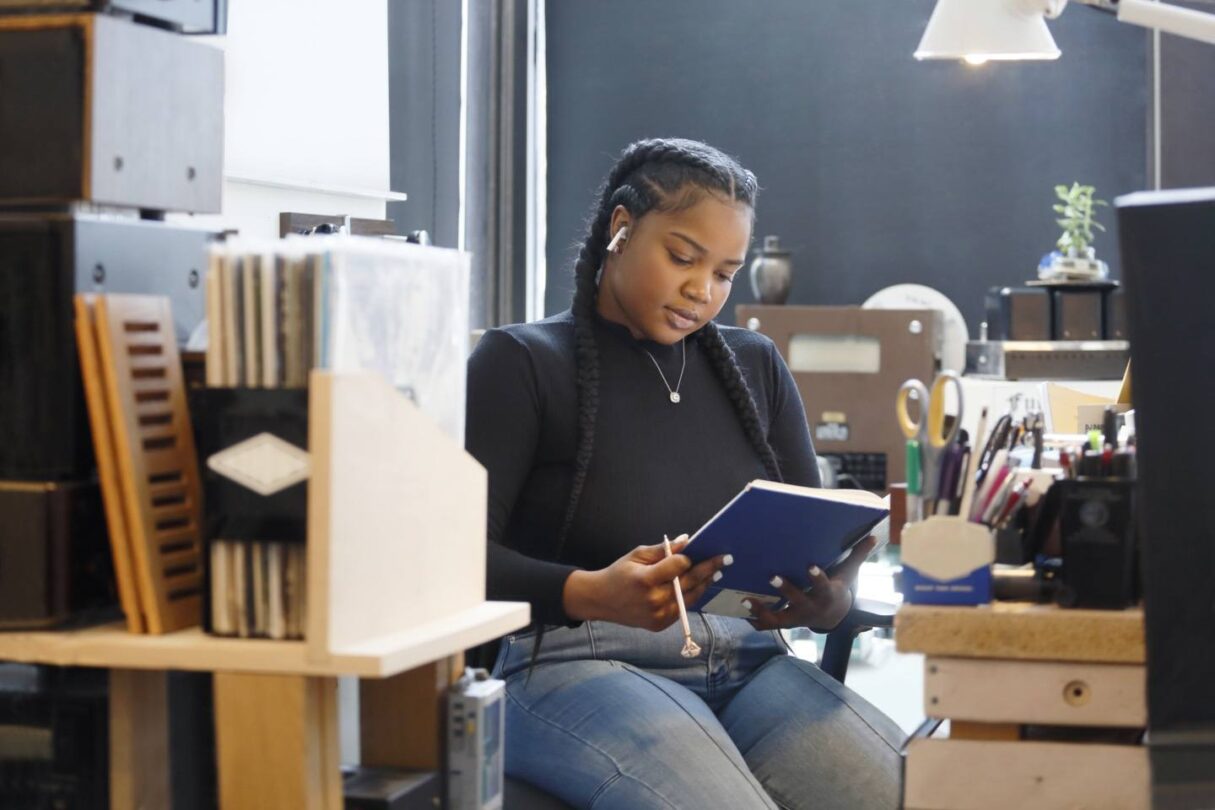Tax deductions UK: Allowable expenses you can claim if you’re self-employed
If you're a sole trader, you can deduct expenses to reduce your tax bill. Find out what costs qualify and how to claim.

If you’re self-employed, allowable expenses can reduce your Self Assessment tax bill.
In this article, we talk about how your business can claim back money.
Here’s what we cover:
- Income tax relief: How you can reduce your tax by claiming on business expenses
- Self-employed allowable expenses list
- What expenses can I claim when working from home?
- How can I track my allowable expenses?
- How do I claim my self-employed business expenses?
- Final thoughts on allowable expenses
- Frequently asked questions about allowable expenses
Income tax relief: How you can reduce your tax by claiming on business expenses
As a sole trader or freelancer, it’s crucial to understand your basic allowable expenses—even if you’re paying an accountant to help with your tax return.
You can claim tax back on some of the costs of running your business—what HMRC calls allowable expenses. These appear as costs in your business accounts deducted from the profit you pay tax on.
Expenses can reduce the average sole trader’s tax bill—often significantly.
For example, if your turnover is £80,000 and you claim £20,000 in allowable expenses, you only pay tax on the remaining £60,000—a substantial saving.
You can also use simplified expenses.
These flat rates allow you to quickly calculate tax relief on vehicles, working from home and living on your business premises.
It can make working your expenses significantly easier.
On the Gov.uk website, you can find the most common expenses you can claim for self-employed and the most common expenses you can claim for if you rent out a property.
Read more on Self Assessment:
- Free e-book: Get Self Assessment right each time
- How to file a Self Assessment tax return online: A step-by-step guide
- What is payment on account and how do I pay it?
Self-employed allowable expenses list
Below, we cover some of the things you can claim for. To reiterate, we assume you’re using cash basis accounting, as the rules for traditional accounting can be slightly different.
You can add these figures to your Self Assessment tax return.
Office equipment and tools
You can claim expenses for business equipment such as laptops, PCs, printers, and computer software that your business has used for less than two years.
You can’t claim tax back on small tools.
Stationery and communications
As well as the usual paper, envelopes and pens, you can also claim back tax on postage and printing, including the costs of printer ink and cartridges you use as part of your business.
With more businesses now trading online, this allowance also applies to electronic communications – so you can claim tax back on your business phone, mobile and internet bills.
Phone and internet
If you use your phone, mobile and internet for personal and business use, you’ll need to demonstrate a realistic way of dividing the costs and can only claim tax back on the part for business use.
You can’t claim any tax back if you can’t show this.
Professional and financial services
If you get advice from an accountant, lawyer or other professional as part of your business, you can claim tax back on their fees.
You can also claim allowable expenses for hiring surveyors and architects for your business—not for personal home improvements.
If you have a business bank account, you can claim tax relief on bank, overdraft and credit card charges or interest on business loans.
You can also claim tax back on hire purchase, lease, or other financial payments for equipment you use in your business.
Let your business thrive with an expert on your side (reference only)
Explore the Sage Accountant and Bookkeeper directory to find an expert suited to your location, industry, and business needs. Connecting with a powerful partner is just a few clicks away.

Staff and employee costs
You can claim tax relief on employee and staff salaries, bonuses, pensions, benefits, staff and employee costs, agency fees, subcontractors, and employer’s National Insurance contributions.
Travel costs
You can claim allowable expenses if you need to travel for business, including train, bus, taxi, airfares, and accommodation costs.
But these only apply if the primary reason for your journey or stay was for business.
If you take a trip that combines business and pleasure, you can only claim tax relief on costs you can show are separate from the private part of your journey.
If you can’t split up the costs, you can’t claim tax relief on any part.
Car and vehicle costs
If you use a vehicle as part of your business, you can claim tax relief for expenses such as petrol, insurance, and repairs.
Mileage allowance
As a self-employed person, you can add up all your motor expenses for the year and work out the separate business element of the total cost.
However, keeping track and working this out takes time and effort.
Instead, you can claim mileage allowance, a simplified expense that lets you calculate the costs of running your vehicle.
Other vehicle-related areas you can claim expenses on include:
- Congestion and low-emission zone charges
- Parking
- Breakdown cover
- Hire charges.
Again, tax relief only applies to these if they are business rather than private expenses.
You can’t claim tax back on parking fines or other fines incurred while driving. There’s no tax relief for breaking the law.
Food and clothing
Everybody needs food and clothing, but claiming for them on expenses depends on what you’re using them for.
Clothing
Generally, you can’t claim for clothing if you’d wear it as part of an everyday wardrobe. So, even if you’ve bought a suit for work, you can’t claim for its cost.
But, if you must buy a uniform that identifies what you do or needs special protective clothing to do your job, you can claim for that.
You can’t claim for non-uniform items such as shoes and socks.
If you’re an entertainer, and the clothes you’re buying are a costume for a stage, TV or film performance, then you can claim tax relief on those.
Clowns, magicians, acrobats and Elvis impersonators – we bet HMRC enjoys reading your clothing claims!
Laundry
If you wear a uniform or special protective clothing, you can claim expenses if you wash, repair, or replace it.
Food
You can only claim money back on food and drink if it’s a business expense, meaning it must be outside your usual working routine, such as a business trip.
Stock and materials
You can claim tax back on the following:
- Items that you resell, such as stock
- Raw materials that you use to make goods for sale
- Direct costs from producing goods.
Marketing and advertising
You can claim tax back on the costs of advertising and marketing your business, including costs for hosting and maintaining your company website.
But beware, you may think that treating a customer or supplier to lunch is ‘marketing’, but HMRC considers it as ‘entertaining’, which you can’t claim tax back for.
If you’re a member of a professional trade body or organisation as part of your business, you can claim tax relief on your membership fees. Subscriptions to trade or professional journals are also allowable expenses, so claim for those.
Pension contributions
Contributions to your pension are not a business expense, so they don’t affect your self-employed profits. However, you are eligible for tax relief on any contributions you make, which you can claim on your tax return.
What expenses can I claim when working from home?
As a sole trader, you may run your businesses from home.
In this case, you can only claim tax back on the proportion of those expenses that relate to the space you use for your business, including heating, electricity, council tax and mortgage interest.
You’ll need to find a realistic way of dividing the costs.
You may divide your bills according to the number of rooms you use for your business or your time working from home.
How can I track my allowable expenses?
You should track your business expenses throughout the year and keep organised records. If you are unincorporated or a sole trader, you must keep records for five years after 31 January of the relevant tax year.
Ideally, you’d use accounting software, which saves time and is more accurate than spreadsheets.
It should let you import expenses and receipts—if you have paper receipts, you can often snap and capture them digitally.
How do I claim my self-employed business expenses?
You work out what you can claim back and add the details to your tax return.
This process will be easier if you’ve kept your expenses organised (adding them to accounting software will help you achieve this).
And ultimately, it could be a matter of giving a single figure for your allowable expenses or providing a detailed breakdown on your tax return.
Either way, you should accurately work out your expenses in case HMRC comes back with questions.
Final thoughts on allowable expenses
Understanding allowable expenses can make all the difference to your cash flow.
Knowing what you can and can’t claim back makes things much easier come tax return time.
While we’ve covered some key expenses you can claim back, getting support from an accountant or tax adviser can make all the difference here.
Give yourself plenty of time to get your head around your allowable expenses, speak to the experts if needed, and ensure you don’t have to pay more tax than is required.
Frequently asked questions about allowable expenses
How do I distinguish between capital and revenue expenses?
Capital expenses are investments in assets that will benefit your business over a long period, while revenue expenses are day-to-day costs.
Understand the difference so you can claim the correct amounts.
What records do I need to keep for my allowable expenses?
Keep invoices, bank statements, and receipts related to your business expenses. Organise these digitally to make it easier at tax return time.
What happens if I get audited by HMRC?
If HMRC decides to audit your business, you must provide proof of your allowable expenses. Failure to do so could result in fines or additional tax payments.
Are startup costs considered allowable expenses?
Although limitations or special rules may exist, certain startup costs could be considered allowable expenses.
Is business insurance an allowable expense?
Yes, you can claim business insurance premiums as an allowable expense.
Can I claim costs for business-related education or training?
Generally, you can claim educational expenses directly related to your current business.
However, training costs that qualify you for a new trade are not allowable.
What if I have a side hustle? Can I claim allowable expenses for it as well?
Yes, if you have multiple businesses—each business can have its own set of allowable expenses. You’ll need to keep these separate for accounting purposes.
Can I claim costs incurred before my business officially started?
You could claim some pre-trading expenses, but specific rules and limitations may apply.
Are there special allowable expenses for businesses that are scaling up?
Expenses related to business growth (such as hiring new staff or moving to a larger office) can be allowable expenses. You might need to claim certain other capital expenditures differently.
Editor’s note: This article was first published in December 2019 and has been updated for relevance.







Hi
If a marketing client sends money for advertising in March, that will be spent in the next financial year, what do you put that under on tax return?
Hi Matt,
Your accountant will be able to advise you on this.
If you then require support with recording this in your Sage software, our Q&A Live team will be able to help you with this. This specialist team are available Monday to Friday, 9am to 5pm at http://www.sage.com/uk/qa and will response in minutes, if not seconds and provide you with real time support.
Regards,
Paul
Sage UKI
Our staff are engineers who have to work on a vessel to overhaul the engines. They have to go away for two weeks. I know you can have a tax/ni free pay of £5 per night, for overnight expenses in the UK and £10 per night if abroad, but are there any other tax/ni free payments for being away for 14 nights please?….. for food/misc etc. Thank you
Hi Tina,
This is something HMRC will need to discuss with you. You can contact them directly to discuss this here http://1sa.ge/bDjv50BBhom or on 0300 322 9434.
If you then require support with recording this in your Sage software, our Q&A Live team will be able to help you with this. This specialist team are available Monday to Friday, 9am to 5pm at http://www.sage.com/uk/qa and will response in minutes, if not seconds and provide you with real time support.
Regards,
Paul
Sage UKI
I have a bike hire company which requires me to, well, purchase bikes to hire out – obviously. Can these bikes go down as stock and materials? Or do they go somewhere else?
Hi Lucy,
Your accountant will be able to advise you on this.
If you then require support with recording this in your Sage software, our Q&A Live team will be able to help you with this. This specialist team are available Monday to Friday, 9am to 5pm at http://www.sage.com/uk/qa and will response in minutes, if not seconds and provide you with real time support.
Regards,
Paul
Sage UKI
My daughter is a part-time teacher and is paid by PAYE for that part of her income.
She is also an artist and will need to pay tax on her profits from that.
How do I do a tax return for her?
Hi Deborah,
The first thing she will need to do is register for Self-Employment. But once that is done she will need to do a Self-Assesment Return, and all of her income from both the teaching job and the artistry will go on the return and the tax will be worked out on her total income.
Hope that helps
Regards Martin
I have a small business which uses a credit card machine. I pay for the use of this service – quarterly charge and a percentage charge for every transaction.
I am filling in my tax return on a cash basis . I am informed that I can only claim £500 tax relief on financial charges. I consider the credit card machine as a financial charge. At present my financial charges sit well above £500. Can I place these expenses elsewhere on my tax return?
Dear Robert,
I don’t know where you were told this, but you can claim the actual amount deducted/paid for credit card costs.
They can all go on the same place on the tax return.
Regards
Martin
Setting up as a self employed gardener. Planning on doing the book keeping myself and then just using an accountant at the end of the year to check and submit my tax return. Can I claim allowable expenses for time I spend doing book keeping? Eg 2 hrs a week. What rate should I use? Know I can claim fees for the accountant.
Karen, if you are paying yourself to do the bookkeeping then it would also be ‘income’ you would have to declare ,so your costs would cancel out with extra income. If someone else does the bookkeeping for you it would be an expense as you would pay them. Unfortunately you do a lot of ‘work’ that is unpaid organising yourself as a self employed person.
Hi Karen,
This is something HMRC will need to look into for you. You can contact them directly to discuss this on 0800 328 5644.
Regards,
Paul
Sage UKI